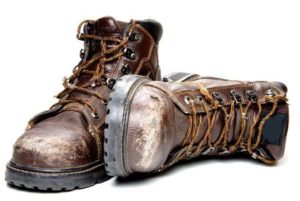 Not many people know this, but many moons ago I did a degree in Land Surveying.
Not many people know this, but many moons ago I did a degree in Land Surveying.
I was one of only 2 women in my final year.
I studied Surveying not because I wanted to break stereotypes, but because it never occurred to me that I could not do it.
What strikes me about writing this now, is that more than 20 years have passed. Yet things have not changed much, if at all.
While in Australia the number of women graduating from university has increased, and women now outnumber men as graduates, we are still severely under-represented in disciplines such as IT, architecture and engineering.
This research graphic from the Office of the Chief Scientist makes for some saddening reading.
The researchers say that despite no innate difference between girls and boys ability to perform well in science, technology, engineering and maths (STEM) subjects, Australia loses female talent at every stage of the STEM career pipeline.
Apparently gender stereotyping around STEM being suitable for girls starts at a very early age.
Two thirds of children aged between 9 and 11 when asked to draw a scientist, drew a man.
Only 33% of girls in grade 4 are confident in their maths abilities, compared to 42% of boys.
The confidence issue is a big one.
I actually graduated in the top 10% of students studying my degree.
But my confidence around stating emphatically that I was good at what I studied was and is low.
I will still say today that I was driven to work hard out of fear that I could not grapple the subjects I studied. If you asked the males in my course who were the top students in my year, my name would never appear on that list.
So, not only did I not see myself as particularly smart, my peers’ perception of who was smart and talented did not look like someone like me.
For me the pipeline into a bigger career in Surveying ended two years after I entered the workforce, and for this there were a whole host of reasons.
I could not see a future and I stopped applying myself. I was bullied by my boss from time to time, often harassed by an older engineer, and chafed at the conservatism of the country town where I worked.
 I left and went overseas, did a whole bunch of other things and never put my work boots back on again.
I left and went overseas, did a whole bunch of other things and never put my work boots back on again.
Today, I wonder whether the story for me would be any different if both my internal narrative and the way people perceived me was different.
People sometimes write about the prison of low expectations, and that the tragedy is that people who are prisoners do not realise they are trapped.
Usually this term is used is in relation to marginalised groups in society – but it’s a term I certainly connect with when I think about my experience when I started out in a male dominated profession.
There was no support for me in terms of professional peer networking or a female mentor for example. However in saying it wasn’t available, I don’t think I would have recognized it as being valuable or for me me even it was offered.
Writing this today, it saddens me that not once in my life to date have I ever heard from my family or the people around me about how big a deal it was to do what I did.
I am sure that story is the same for the other women who graduated with me and after me.
It is a big deal to break stereotypes and go against the norm. My Mum applauds men pushing prams every time she sees them. When she does this I silently roll my eyes and say that he’s just doing what a parent should do, but she still thinks it’s marvellous that a man takes some responsibility for parenting.
Imagine how we as female graduates may have thought about ourselves if we walked into a workplace where people said “fantastic, woo hoo thank God you’re here, congratulations, you’ve done so well,” instead of being asked to transcribe someone’s personal address book in neat handwriting, like I was on my first work placement.
I wonder about whether my surveying story would have had a different ending if I also had an inbuilt recognition of the actual talent and resilience in myself, and the confidence to know that some of what I was experiencing was discrimination and dismissal in various forms – instead of just always thinking it was about my poor form.
Where I stopped was at the limit of my maturity, confidence and life skills at the time.
I am older and (somewhat 😉 ) wiser now. And I have to say the experience of being in the minority, where there’s not a firmly charted course, has definitely given me the confidence to leave my corporate job, start my own business, develop my first website and not being afraid to go first in many ways.
The lesson here is that we need to encourage everyone to have a go at things they don’t even know they think they cannot do. It worked for me. Not in the way I originally planned, but in a far bigger way in the end.
I now have built a business from zero that is so completely portable I can attend to from any place in the world.
Our future workforce needs diversity and more women taking up STEM based careers. PwC research suggests that 75% of jobs of the future will require STEM skills.
And if you’re reading this and looking at practical ways to help this happen, take a look at initiatives like HP’s recently announced Kids Fund. I have been doing work with them recently and am so inspired by the fact that they’re offering $10,000 grants to Australian schools to purchase technology to help students develop tech skills.
The stats for women starting careers in technology are alarming. As are the stats for women launching start ups. Only 4% of investment funded start-ups are led by female entrepreneurs.
I see it mostly this way.
If I got my start and moved this far without having that much confidence, imagine what your daughter could do with the right start, a round of applause and some quality support along the way.

 Follow
Follow
{ 1 comment… read it below or add one }
Well articulated Karalyn.